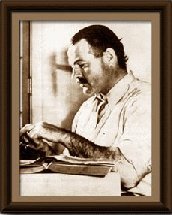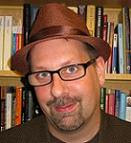 Once again a literary figure of note (or notoriety, anyway) passes and I'm forced to admit I really haven't read anything by him, save the spare excerpt here or interview there.
Once again a literary figure of note (or notoriety, anyway) passes and I'm forced to admit I really haven't read anything by him, save the spare excerpt here or interview there.
But is that really so surprising? Norman Mailer is one of those writers most everyone has read about without having actually sampled any of his wares firsthand. He came close to the literary equivalent of "famous for being famous," although one must concede he did actually write books, and quite a lot of them.
I'm none too sure what to make of Mailer. Well, actually, I think I do know what to make of him. He seems to have been a conceited ass; a boor; a tireless self-promoter; something of a thug (everyone knows about how he stabbed and almost killed his second wife in 1960); and a writer of, shall we say, highly inconsistent quality. In a career spanning nearly 60 years, he seems to have had relatively few real successes. His greatest claims to fame include his first novel, The Naked and the Dead; his Pulitzer Prize–winning account of a 1967 peace march, The Armies of the Night; and his 1979 book about a convicted killer, The Executioner's Song, for which he won a second Pulitzer. (These books also have their detractors.)
Dual Pulitzers notwithstanding, one doesn't endure in the public mind for six decades without some reason. What was the secret to Mailer's continued cultural presence? An article in Time entitled "Why Norman Mailer Mattered" answers its own question only with a tautology:
But make no mistake, when he died on Saturday, something important was lost. Even at his most exasperating and contrarian -- especially at his most contradictory and contrarian -- he was an indispensable cultural voice.Without any examples provided, the whiff of "famous for being famous" returns. Less-than-kind critic Roger Kimball hypothesizes that Mailer was essentially propped up by a self-indulgent and decadent intelligentsia:
[I]t is difficult to appreciate the awe with which Norman Mailer was regarded by the literary and academic establishment from the 1950s through the 1960s and into the 1970s.... No one combined critical regard, popular celebrity, and radical chic politics with quite the same insouciance.... From the late 1940s until the 1980s, he showed himself to be extraordinarily deft at persuading credulous intellectuals to collaborate in his megalomania.The phenomenon of well-placed, agenda-driven "fellow travelers" (of whatever stripe) pitching mediocrity as genius is something most cultural observers are aware of, so I don't discount Kimball's theory entirely. But without having read any of Mailer's books, I'm not well qualified to render a judgment on his literary merit or lack thereof. What I can say is that when I've read him in interviews or excerpt-sized doses, he often reminded me of Noam Chomsky: seemingly full of import and profundity, but ultimately not making much sense.*
I suppose I would predict Mailer's literary legacy in the long run to be relatively negligible, less than even, say, Hunter S. Thompson's. While writing this, it occurred to me I couldn't think of anything memorable Mailer has said: Usually a writer sticks around long enough, he gets at least one good pithy quote lodged in popular consciousness. I Googled "norman mailer quotes" and in fairness, I did turn up a few that I like:
We can never know for certain where our prayers are likely to go, nor from whom the answers will come. Just when we think we are at our nearest to God, we could be assisting the Devil.In the end, however, it may be fitting if Mailer is immortalized not by anything he wrote himself, but instead by these profound, tributary lyrics from GWAR!!1!:
***
If a person is not talented enough to be a novelist, not smart enough to be a lawyer, and his hands are too shaky to perform operations, he becomes a journalist.
***
Writing books is the closest men ever come to childbearing.
***
With the pride of the artist, you must blow against the walls of every power that exists the small trumpet of your defiance.
***
When I read it, I don't wince, which is all I ever ask for a book I write.
Vlad, Vlad, Vlad the Impaler,
Vlad, Vlad, he could have been a sailor, but he's
Vlad, Vlad, Vlad the Impaler,
Vlad, Vlad, he could have been a whaler,
Could have been a tailor,
But he turned out to be Norman Mailer.
* A few years ago, Mailer was interviewed in, of all places, The American Conservative, and he was straightforward enough in his self-described incarnation as a "left-conservative" that I kind of understood him.











|